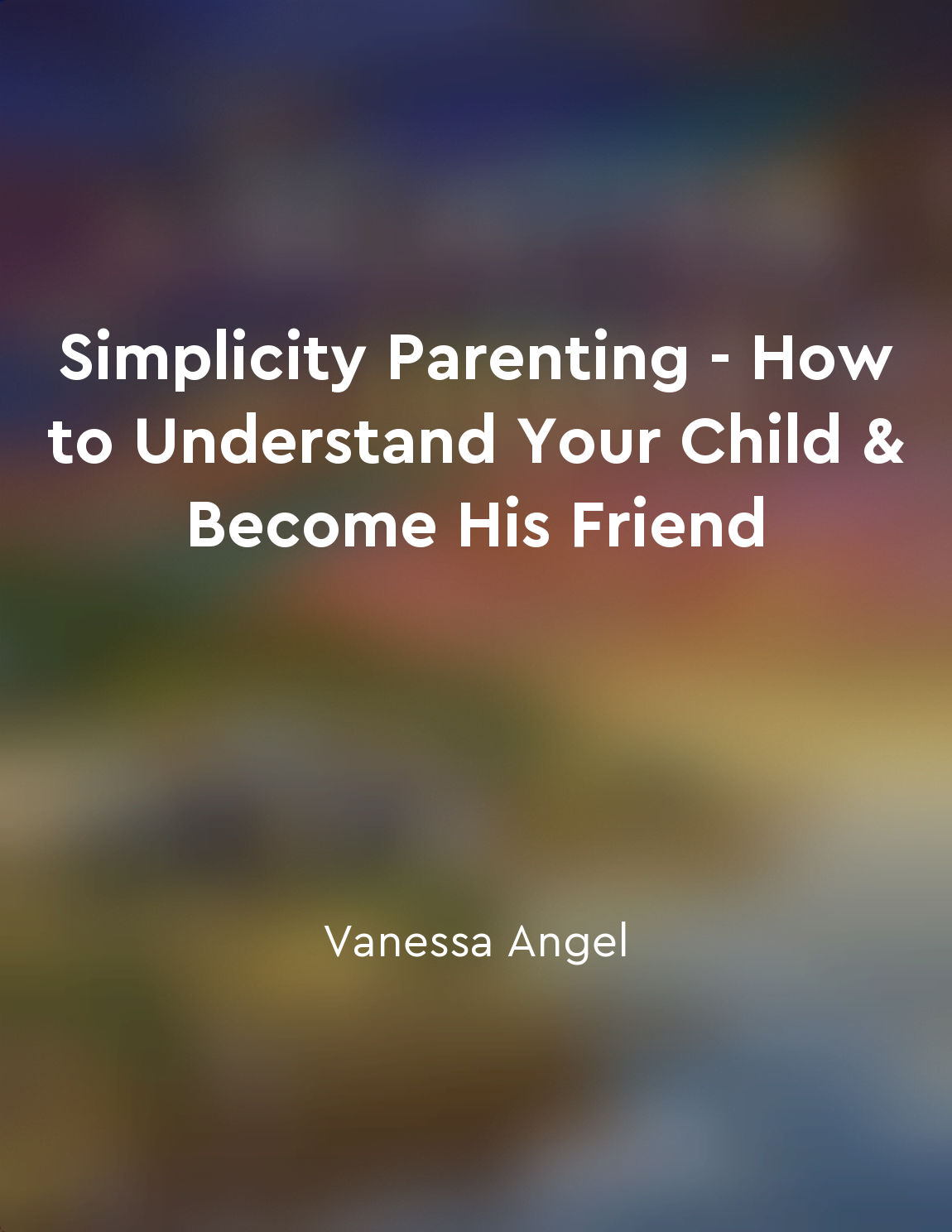Modeling healthy emotional expression sets a good example for children from "summary" of The Science of Parenting by Margot Sunderland
Children learn how to express their emotions by observing the adults around them. When parents demonstrate healthy emotional expression, they provide a valuable model for their children to follow. This means showing a range of emotions in a constructive way, such as talking about feelings, managing stress effectively, and resolving conflicts peacefully. By doing so, parents teach children that emotions are a natural part of life and can be expressed in a healthy manner. When parents exhibit positive emotional expression, they create a safe and supportive environment for their children. This helps children feel secure and understood, knowing that their own emotions are accepted and respected. In contrast, parents who suppress their emotions or express them in unhealthy ways can inadvertently teach their children negative patterns of behavior. Children may learn to bottle up their emotions, act out inappropriately, or resort to aggression when faced with challenges. Furthermore, modeling healthy emotional expression helps children develop important social and emotional skills. When parents show empathy, handle stress calmly, and communicate effectively, children learn how to navigate their own emotions and interact with others in a positive way. This sets a strong foundation for healthy relationships and emotional well-being in the future.- Parents who model healthy emotional expression set a good example for their children by demonstrating how to acknowledge, understand, and manage emotions in a constructive manner. By fostering a supportive environment and teaching valuable social and emotional skills, parents play a crucial role in shaping their children's emotional development. Ultimately, parents have the power to influence how their children perceive and express emotions, laying the groundwork for healthy emotional expression throughout their lives.
Similar Posts
Developing coping strategies is essential for emotional health
To navigate the ups and downs of life, we must equip ourselves with effective coping strategies. These strategies act as our sh...

Lead by example
This concept is about embodying the qualities and behaviors that you want to see in your child. Children are like sponges, abso...

Learn to let go of past hurts and disappointments to move forward emotionally
It is crucial to acknowledge that holding onto past hurts and disappointments can hinder our emotional growth and well-being. W...
Respect differences in communication styles
Understanding and acknowledging that everyone communicates differently is crucial in fostering effective communication. Each pe...
Embracing the journey of emotional development is a lifelong process
The journey of emotional development is not something that can be rushed or completed in a short period. It is a continuous pro...

Practice gentle and respectful parenting
To practice gentle and respectful parenting means treating your child with kindness, empathy, and understanding. It involves ac...
Cultivating emotional intelligence leads to greater selfawareness and empathy
Emotional intelligence is a crucial skill that allows us to navigate our inner world and effectively connect with others. When ...
Stay calm and composed during discipline
The ability to remain calm and composed during moments of discipline is absolutely crucial to effective parenting. It is unders...
Foster a sense of connection and belonging
To truly connect with others, we must create an environment where they feel a strong sense of belonging. This involves creating...
Foster strong relationships with family and friends
Building strong relationships with family and friends is crucial to our happiness and well-being. Research has shown that peopl...

